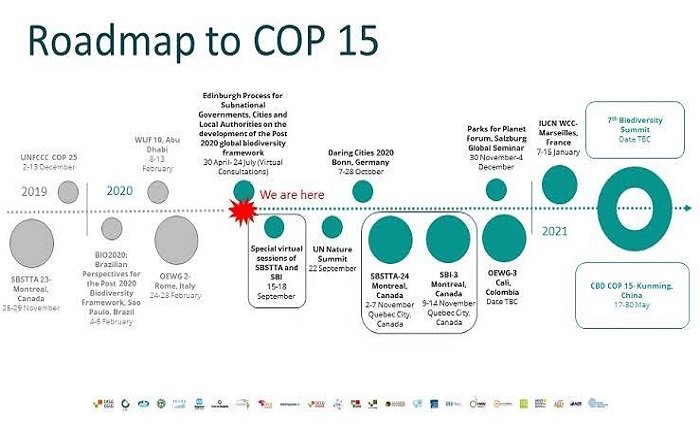CBD COP 15 UPSC: What You Need to Know

CBD COP 15 UPSC is a topic that may appear in the Union Public Service Commission (UPSC) exams, which are the civil services exams in India. The UPSC exams test the candidates’ knowledge and aptitude on various subjects, including current affairs, environment, and international relations. CBD COP 15 UPSC refers to the 15th meeting of the Conference of the Parties (COP 15) to the Convention on Biological Diversity (CBD), which is a global treaty that aims to protect and conserve biodiversity and promote its sustainable use. CBD COP 15 UPSC is an important topic because it has implications for India’s biodiversity, economy, development, and foreign policy. In this blog post, we will explain what CBD COP 15 UPSC is, what are its main outcomes and challenges, and why it matters for India.
What is CBD COP 15?
CBD COP 15 is the latest and most significant meeting of the parties to the CBD, which took place in two parts: the first part in Kunming, China, from October 11 to 15, 2021, and the second part in Montreal, Canada, from December 13 to 18, 2021. The theme of CBD COP 15 was “Ecological Civilization: Building a Shared Future for All Life on Earth”. The main objective of CBD COP 15 was to adopt a new global biodiversity framework for the post-2020 period, which will guide the international efforts to halt and reverse the loss of biodiversity by 2030 and achieve the vision of living in harmony with nature by 2050.
What are the Main Outcomes of CBD COP 15?
The main outcome of CBD COP 15 was the adoption of the Kunming-Montreal Global Biodiversity Framework (GBF), which is a set of four goals and 23 targets for achieving the objectives of the CBD by 2030. The GBF also includes indicators, baselines, milestones, implementation mechanisms, monitoring systems, and review processes. Some of the key targets of the GBF are:
- Protect at least 30% of land and sea areas by 2030.
- Restore at least 20% of degraded ecosystems by 2030.
- Reduce pollution, including plastic pollution, by at least 50% by 2030.
- Reduce the negative impacts of unsustainable fishing practices on biodiversity by at least 50% by 2030.
- Increase the share of renewable energy in the global energy mix to at least 50% by 2030.
- Reduce food waste and loss by at least 50% by 2030.
- Increase the use of nature-based solutions to address climate change and other environmental challenges.
- Protect and restore at least 20% of inland water ecosystems by 2030.
- Increase the participation of indigenous peoples and local communities in biodiversity conservation and management.
- Promote gender equality and women’s empowerment in biodiversity conservation and management.
- Increase the mobilization of financial resources for biodiversity conservation and sustainable use.
Another major outcome of CBD COP 15 was the adoption of several decisions on various issues related to biodiversity, such as:
- Mobilizing adequate and predictable resources for implementing the GBF, including increasing domestic and international funding, enhancing financial mechanisms, leveraging private sector investments, and mainstreaming biodiversity into other sectors and policies.
- Enhancing cooperation and partnerships among various actors and stakeholders for implementing the GBF, including strengthening the role and participation of indigenous peoples and local communities, civil society organizations, women, youth, academia, media, etc.
- Raising awareness and generating political momentum for implementing the GBF, including launching a global campaign to communicate the importance and urgency of biodiversity conservation and sustainable use, and to inspire action and commitment from all levels and sectors.
- Addressing other cross-cutting issues such as biosafety, access and benefit-sharing, digital sequence information, synthetic biology, invasive alien species, marine biodiversity, etc.
What are the Main Challenges for CBD COP 15?
Despite the adoption of the GBF and other decisions at CBD COP 15, there are still many challenges and gaps in achieving its objectives and targets. Some of these challenges are:
- The insufficient progress in achieving the previous Strategic Plan for Biodiversity 2011-2020 and its Aichi Biodiversity Targets, which shows that none of the targets have been fully met, while only six have been partially achieved.
- The lack of adequate implementation mechanisms, capacity building, technology transfer, monitoring, reporting, and evaluation systems to support the implementation of the GBF at all levels.
- The lack of effective integration of biodiversity considerations into other sectors and policies, such as agriculture, forestry, fisheries, energy, mining, tourism, health, trade, development, education, etc.
- The lack of sufficient awareness, engagement, participation, collaboration, coordination, communication, education, and outreach among various stakeholders involved in or affected by biodiversity issues.
- The ongoing and emerging threats to biodiversity, such as habitat destruction, overexploitation, climate change, pollution, invasive alien species, etc.
Why Does CBD COP 15 Matter for India?
CBD COP 15 matters for India because India is one of the mega-diverse countries in the world, with about 8% of the global biodiversity and 18% of the global population. India is also one of the parties to the CBD and has ratified its supplementary protocols on biosafety and access and benefit-sharing. India has also hosted the CBD COP 11 in Hyderabad in 2012 and played a key role in shaping the previous Strategic Plan for Biodiversity 2011-2020 and its Aichi Biodiversity Targets. India has also implemented several national policies and programmes to conserve and sustainably use its biodiversity, such as the National Biodiversity Action Plan, the National Biodiversity Authority, the Biological Diversity Act, the National Mission on Biodiversity and Human Well-being, etc.
CBD COP 15 matters for India because it provides an opportunity for India to:
- Contribute to the global efforts to protect and restore biodiversity and promote its sustainable use.
- Align its national policies and actions with the GBF and its targets and indicators.
- Showcase its achievements and best practices in biodiversity conservation and sustainable use.
- Learn from the experiences and challenges of other countries and regions in biodiversity conservation and sustainable use.
- Strengthen its cooperation and partnerships with other parties and stakeholders on biodiversity issues.
- Enhance its image and reputation as a responsible and proactive actor on biodiversity issues.
Conclusion
CBD COP 15 UPSC is a topic that may appear in the UPSC exams, which are the civil services exams in India. CBD COP 15 UPSC refers to the 15th meeting of the Conference of the Parties (COP 15) to the Convention on Biological Diversity (CBD), which is a global treaty that aims to protect and conserve biodiversity and promote its sustainable use. CBD COP 15 UPSC is an important topic because it has implications for India’s biodiversity, economy, development, and foreign policy. CBD COP 15 UPSC is a topic that requires a thorough understanding of what CBD COP 15 is, what are its main outcomes and challenges, and why it matters for India.




